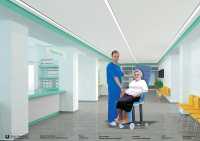Accidents & Violence, Author Interviews, Geriatrics / 13.08.2019
Definition of Elder Mistreatment May Vary by Ethnicity
MedicalResearch.com Interview with:
 XinQi Dong MD, MPH
Henry Rutgers Distinguished Professor of Population Health Sciences
Director of the Director of Institute for Health, Health Care Policy and Aging Research
Rutgers University
New Brunswick, NJ 08901
MedicalResearch.com: What is the background for this study? What are the main findings?
Response: This study was done among community-dwelling US Chinese older adults aged 60 and above living in the greater Chicago area. The baseline cohort consisted of 3,157 participants, and we followed up with them from 2011 to 2017. There were heterogeneities in the associations between the strictness of definitions and subtypes of elder mistreatment (EM) and yearly mortality. (more…)
XinQi Dong MD, MPH
Henry Rutgers Distinguished Professor of Population Health Sciences
Director of the Director of Institute for Health, Health Care Policy and Aging Research
Rutgers University
New Brunswick, NJ 08901
MedicalResearch.com: What is the background for this study? What are the main findings?
Response: This study was done among community-dwelling US Chinese older adults aged 60 and above living in the greater Chicago area. The baseline cohort consisted of 3,157 participants, and we followed up with them from 2011 to 2017. There were heterogeneities in the associations between the strictness of definitions and subtypes of elder mistreatment (EM) and yearly mortality. (more…)
 XinQi Dong MD, MPH
Henry Rutgers Distinguished Professor of Population Health Sciences
Director of the Director of Institute for Health, Health Care Policy and Aging Research
Rutgers University
New Brunswick, NJ 08901
MedicalResearch.com: What is the background for this study? What are the main findings?
Response: This study was done among community-dwelling US Chinese older adults aged 60 and above living in the greater Chicago area. The baseline cohort consisted of 3,157 participants, and we followed up with them from 2011 to 2017. There were heterogeneities in the associations between the strictness of definitions and subtypes of elder mistreatment (EM) and yearly mortality. (more…)
XinQi Dong MD, MPH
Henry Rutgers Distinguished Professor of Population Health Sciences
Director of the Director of Institute for Health, Health Care Policy and Aging Research
Rutgers University
New Brunswick, NJ 08901
MedicalResearch.com: What is the background for this study? What are the main findings?
Response: This study was done among community-dwelling US Chinese older adults aged 60 and above living in the greater Chicago area. The baseline cohort consisted of 3,157 participants, and we followed up with them from 2011 to 2017. There were heterogeneities in the associations between the strictness of definitions and subtypes of elder mistreatment (EM) and yearly mortality. (more…)














 Cara Tannenbaum, MD, MSc
Director | Directrice
Canadian Deprescribing Network
MedicalResearch.com: What is the background for this study? What are the main findings?
Response: The D-Prescribe trial was driven by the need to show that seniors can cut down on their medication in a safe and effective manner. Pharmacists intervened in a proactive way to flag patients who were on potentially risky meds such as sleeping pills, NSAIDs and glyburide and to inform them of the risks, using an educational brochure. Pharmacists also communicated with their physician using an evidence-based pharmaceutical opinion to spark conversations about deprescribing. As a result, 43% of patients succeeded in discontinuing at least one medication over the next 6 months.
Cara Tannenbaum, MD, MSc
Director | Directrice
Canadian Deprescribing Network
MedicalResearch.com: What is the background for this study? What are the main findings?
Response: The D-Prescribe trial was driven by the need to show that seniors can cut down on their medication in a safe and effective manner. Pharmacists intervened in a proactive way to flag patients who were on potentially risky meds such as sleeping pills, NSAIDs and glyburide and to inform them of the risks, using an educational brochure. Pharmacists also communicated with their physician using an evidence-based pharmaceutical opinion to spark conversations about deprescribing. As a result, 43% of patients succeeded in discontinuing at least one medication over the next 6 months.
















